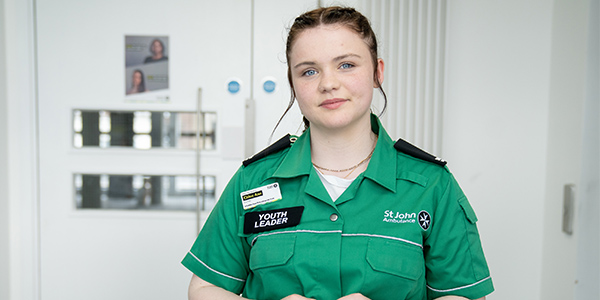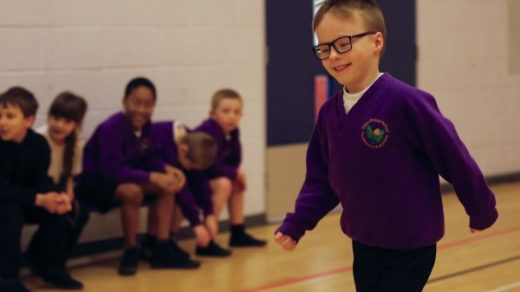Teaching mental health first aid in schools should be compulsory

As millions of teens up and down the country battle with crippling anxiety and nerves as they sit GCSE and A-levels, St John Ambulance reveals an overwhelming majority of 10–17-year-olds (75%) believe mental health first aid should be taught in schools and made compulsory alongside physical first aid.
Teaching physical first aid in schools in England was made compulsory in 2020 after successful campaigning by St John and other first aid organisations.
With record levels of young people identifying as having a mental health problem beyond seasonal exam stress – the health and first aid charity wants mental health first aid to be taught in schools. NHS 2021 data shows one in six children aged five to 16 identifying as having a probable mental health problem; a huge leap from one in nine from 2017.
Chloe Ann Manley, 18, a St John Ambulance volunteer youth leader who first joined the charity as a cadet, is open about her own mental health and uses her experiences to help other young people.
Chloe said: “There’s a stigma around mental health – if you are not physically unwell then you’re not struggling. I really struggled in school not only with the academic side but the social and emotional elements too. I just didn’t believe I was good enough. When you struggle with your mental health it can be hard to see your own value.”
Chloe supports the latest St John research findings, which coincide with its Ask Me campaign highlighting its work helping young people gain skills to help them in life, improve confidence and save lives.
Chloe said, “I think it’s incredibly important to talk about mental health and teach wellbeing habits. We need to reconstruct mental health culture and increase awareness – not only on national days. We teach first aid so that we know what to do in the event someone falls over, having a hard time is similar to this. Giving young people the knowledge on how to pick themselves, or someone else up, in a hard time is just as important. It’s all about teaching the next generation to be kind, supportive and aware.”
St John provides mental health first training in the workplace, alongside its physical first aid. It also runs several free youth programmes for those aged 5-25, teaching mental health awareness, resilience and signs to look out for.
As well as the more obvious signs such as sadness, lack of self-esteem and anxiety, look out for less typical signs such as:
- Aggression
- Feeling full of energy
- Forgetfulness
- Sleeping too much or too little
- Eating too much or too little
- Having strict habits or routines around food
St John Ambulance lead mental health first aid trainer, Dr Mark Graham said, “We want to see mental health first aid extended to schools to give young people the coping skills if they are struggling with their mental health and to de-stigmatise mental health. As Chloe says, it’s about knowing how to pick people up mentally and spot the signs.
“You don’t need to be a doctor or a mental health expert to ask how someone is doing, and you don’t need to solve their problem and try to find the positives – listening and validation is really all that is needed.”
To find out more about St John Ambulance visit www.sja.org.uk or follow them on socials using #AskMe






